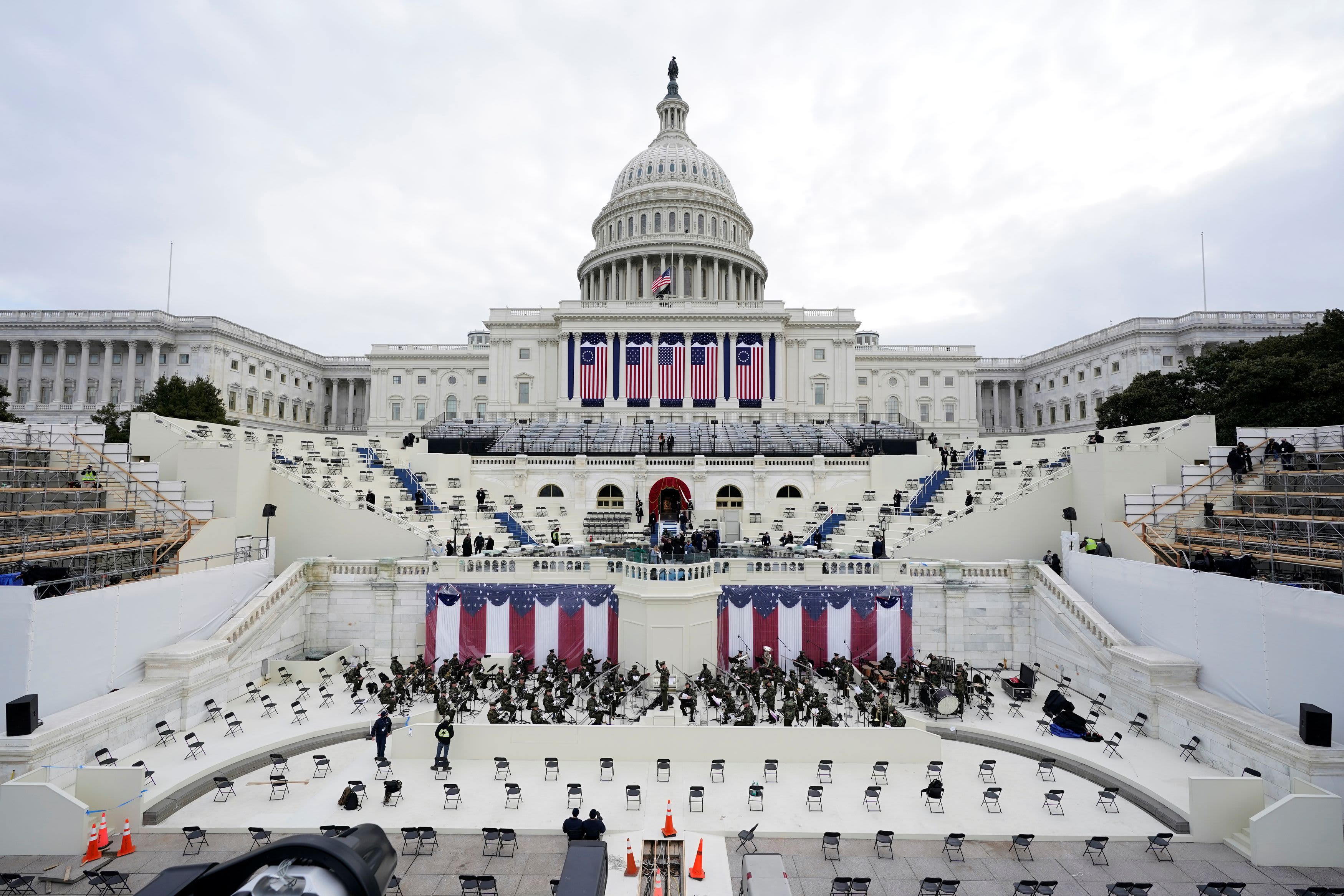The 2025 Inauguration: A Moment Of Transition And Renewal
The 2025 Inauguration: A Moment of Transition and Renewal
The 2025 Inauguration: A Moment of Transition and Renewal
Introduction
In this auspicious occasion, we are delighted to delve into the intriguing topic related to The 2025 Inauguration: A Moment of Transition and Renewal. Let’s weave interesting information and offer fresh perspectives to the readers.
Table of Content
The 2025 Inauguration: A Moment of Transition and Renewal

The inauguration of the next President of the United States, scheduled for January 20, 2025, marks a significant moment in American democracy. It represents the culmination of a long and often arduous electoral process, culminating in the peaceful transfer of power from one administration to the next. This event holds immense importance, not just for the nation’s political landscape, but also for its social, economic, and international standing.
Understanding the Significance
The inauguration ceremony is a symbolic act that reaffirms the principles of democracy and the peaceful transfer of power. It serves as a reminder of the nation’s commitment to democratic values and the rule of law. The event also provides an opportunity for the incoming President to outline their vision for the future, setting the stage for their administration’s priorities and policies.
Beyond the symbolic aspects, the inauguration holds practical significance as well. The ceremony signifies the official commencement of the new President’s term, marking the beginning of their four-year mandate. This transition involves the appointment of new Cabinet members, the implementation of policy changes, and the initiation of various programs and initiatives.
Factors Shaping the 2025 Inauguration
The 2025 inauguration will be shaped by numerous factors, including:
- The outcome of the 2024 Presidential election: The outcome of the election will determine the political landscape and the direction of the incoming administration. The policies, priorities, and ideological leanings of the elected President will significantly influence the agenda for the next four years.
- The state of the economy: The economic situation at the time of the inauguration will be a critical factor. The new administration will inherit a complex economic landscape, possibly grappling with issues like inflation, unemployment, or global economic instability.
- Domestic and international challenges: The incoming President will face a multitude of challenges, both domestic and international. These could include issues like climate change, social inequality, political polarization, or international conflicts.
- The legacy of the previous administration: The incoming President will inherit the legacy of the previous administration, including its successes and failures. This will influence the public’s expectations and shape the political landscape for the new administration.
Engaging with the Inauguration
The 2025 inauguration will be a significant event, drawing attention from both within the United States and across the globe. It is a moment to reflect on the nation’s progress, its challenges, and its aspirations for the future.
Citizens can engage with the inauguration in various ways:
- Following news coverage: Stay informed about the inauguration process, the incoming President’s plans, and the events leading up to the ceremony.
- Attending public events: Many cities will host events related to the inauguration, offering opportunities to engage with the ceremony and connect with fellow citizens.
- Participating in discussions: Engage in discussions with friends, family, and community members about the inauguration and its implications.
- Advocating for change: Use the inauguration as a catalyst to advocate for policies and initiatives that align with your values and priorities.
Frequently Asked Questions
Q: How is the President elected?
A: The President of the United States is elected through a complex process involving the Electoral College. Each state is allocated a number of electors based on its population, and the candidate who wins the popular vote in a state typically receives all of that state’s electoral votes. The candidate who receives a majority of the electoral votes (at least 270 out of 538) wins the presidency.
Q: What are the responsibilities of the President?
A: The President serves as the head of state and head of government. Their responsibilities include:
- Commander-in-Chief of the Armed Forces: The President has the authority to deploy troops and direct military operations.
- Chief Executive: The President oversees the executive branch of government, appointing Cabinet members and other high-ranking officials.
- Chief Diplomat: The President represents the United States in international affairs, negotiating treaties and establishing diplomatic relations.
- Legislative Leader: The President proposes legislation to Congress and works with lawmakers to shape policy.
- Chief of State: The President serves as the symbolic head of the nation, representing the United States in ceremonies and events.
Q: What are some of the key issues facing the next President?
A: The next President will face a range of critical issues, including:
- The economy: Addressing issues like inflation, unemployment, and economic inequality.
- Climate change: Implementing policies to mitigate the effects of climate change and transition to a sustainable future.
- Healthcare: Ensuring affordable and accessible healthcare for all Americans.
- Education: Improving the quality and affordability of education at all levels.
- Immigration: Addressing the complex issue of immigration and reforming the immigration system.
- Social justice: Addressing issues of racial justice, gender equality, and LGBTQ+ rights.
- National security: Addressing threats to national security, including terrorism, cyberattacks, and nuclear proliferation.
Tips for Engaging with the Inauguration
- Stay informed: Follow reputable news sources and stay updated on the events leading up to the inauguration.
- Learn about the candidates: Research the platforms and policies of the candidates vying for the presidency.
- Engage in respectful dialogue: Participate in discussions about the election and the inauguration, fostering respectful and constructive conversations.
- Support your values: Advocate for policies and initiatives that align with your values and priorities.
- Participate in civic activities: Consider volunteering or participating in community events related to the inauguration.
Conclusion
The 2025 inauguration will be a pivotal moment in American history. It will mark the beginning of a new era, shaping the nation’s future for the next four years. By understanding the significance of the event, engaging with the process, and advocating for their values, citizens can play an active role in shaping the direction of the country. The inauguration serves as a reminder of the power of democracy and the importance of civic engagement in a healthy and vibrant society.








Closure
Thus, we hope this article has provided valuable insights into The 2025 Inauguration: A Moment of Transition and Renewal. We hope you find this article informative and beneficial. See you in our next article!